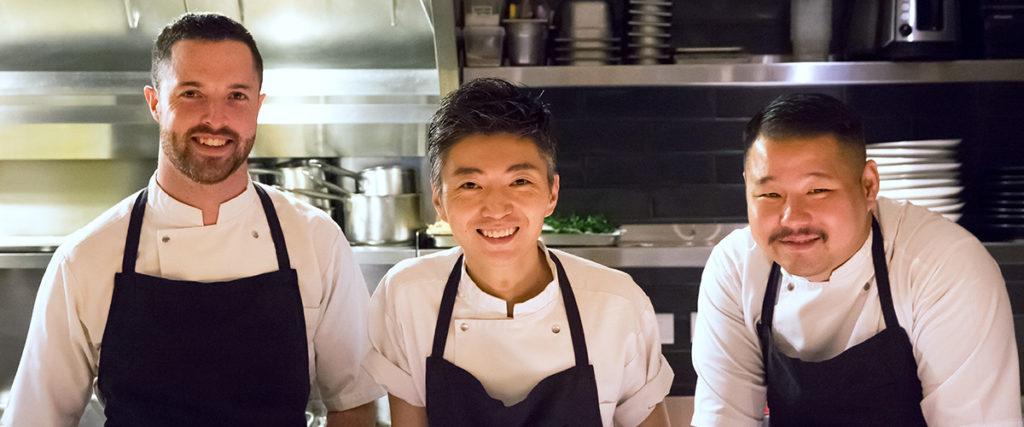From Noma to Nur, Michelin Star winning Chef Richie Lin has worked in some of the most prestigious restaurants in the world. Here, he tells us how his Nordic inspired Taipei hotspot, MUME, stays ahead of the game.
The idea was simple – build a restaurant that you want to eat in. And this is exactly what Richie Lin did at the end of 2014 when he opened his award-winning restaurant MUME in the centre of Taipei’s buzzing dining culture. Skyrocketing into the world’s top 50 restaurants in just three years, the Noma-trained chef tells us how he built MUME, Taipei’s take on Nordic cuisine crafted with local Taiwanese ingredients (and a Michelin star to boot).
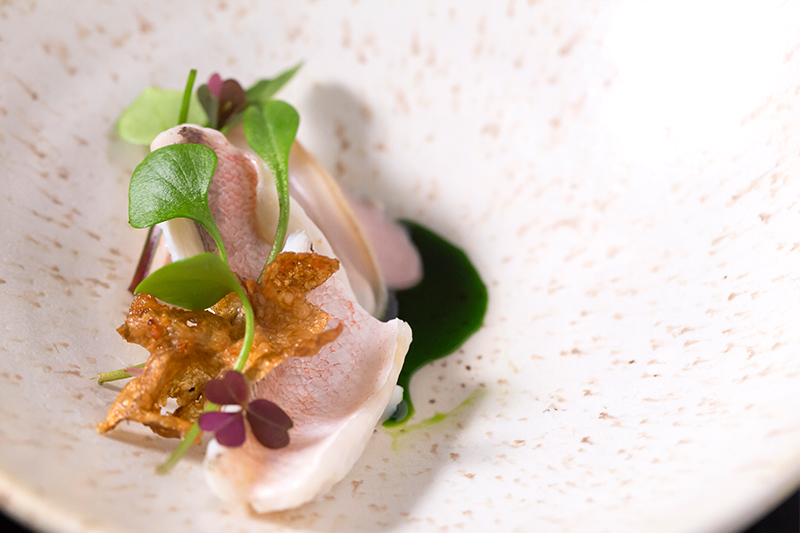
Born to a local Hong Kong family and educated in Canada, Richie found himself at a professional impasse in his late 20’s after his father passed away. Was he to continue running his family’s manufacturing business in Hong Kong or go to a culinary school in Sydney to pursue his dreams? Luckily for the diners of Taipei, he chose the latter. “From there I worked as hard as possible because, from a chef’s perspective, 27 is actually really late to start out with zero experience. I had cooked a lot as a hobby, but it’s the same as having loved basketball your whole life – it doesn’t mean you can play for the NBA.”
Landing in Sydney in 2006, Richie finished his training at Le Cordon Bleu Australia before landing various jobs as a chef in Sydney’s best restaurants and then a stint at Noma – a two Michelin starred restaurant in Copenhagen, considered to be the best restaurant in the world at the time. He then moved back home to Hong Kong to be part of the team opening Nur in 2013, a restaurant focused on local, sustainable ingredients. It quickly also won a Michelin star, but, just 3 months after opening, Richie opted out of the safe option that was its success. “I knew it wasn’t 100% what I wanted to do. But that period actually helped me shape MUME because every single decision that was made along the way made me think, ‘Okay, if I was setting up my own restaurant, would I do the same thing?’ So the more I went through, the more solid the idea of MUME became.”
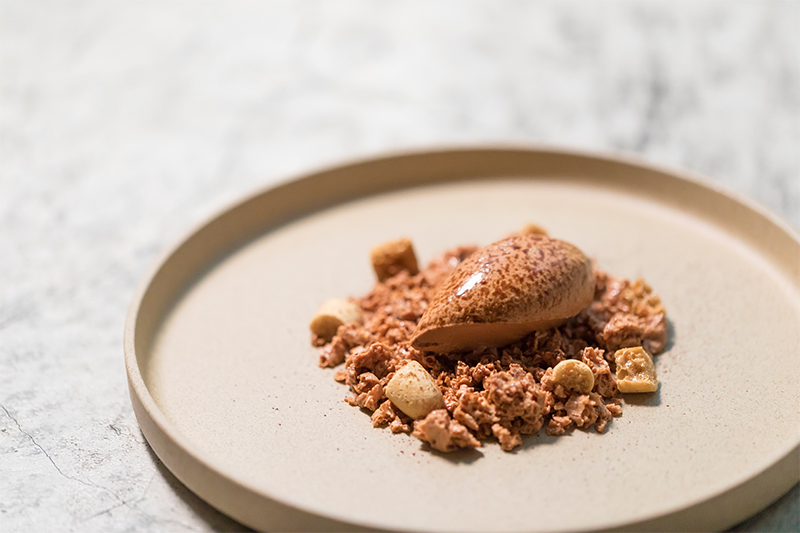
However, it was really Richie’s visits to Taiwan that saw MUME come to life. Absorbed by Taiwan’s flourishing “eating out culture,” he immediately noticed countless culinary opportunities – particularly a lack of laid-back, mid-range restaurants. “When we set up MUME four years ago, Taiwan’s restaurant market was either cheap, local restaurants or ultra fine dining. There was nothing in between and I wanted to go into that because that’s the sort of restaurant I love going to myself. I wanted it to be nice, affordable, food-focused and relaxed.”
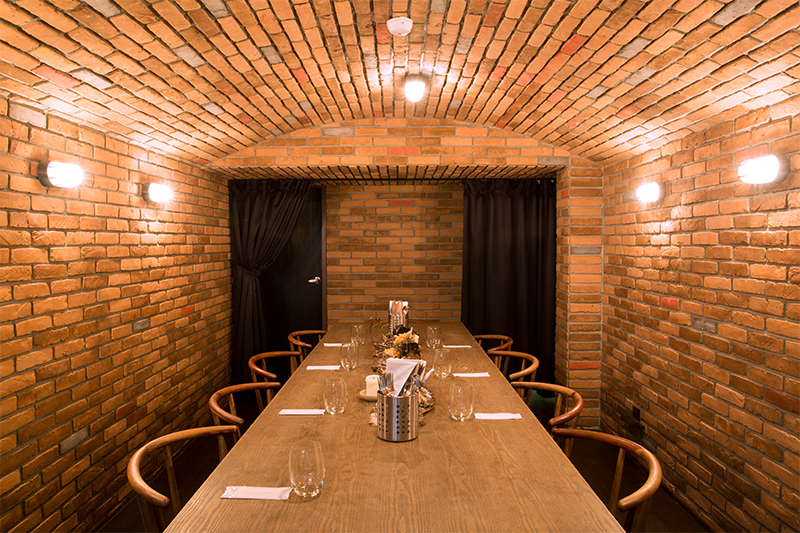
And so, the dimly lit and wood panelled MUME now lives in the cultural hub that is Da’an District with a reputation all of its own and now a place in the Top 50 Restaurants in the World. Opening only at night, Taipei is invited to enjoy an atmosphere similar to that of a wine bar, whilst enjoying tastes of a unique fusion of Asia and European cuisine. “Our goal is very straightforward and simple. We cook the way we believe in. We try and use as many local ingredients as possible. Right now, 90-95% of the produce we use is produced in Taiwan. The concept is to showcase what we have in Taiwan to the rest of the world through the seasons and food whilst also being environmentally sustainable.”
Having previously worked in restaurants of not only culinary prestige but also sustainable expertise, Richie knew he wanted to make this part of his life’s work, whether this be by working with local farmers or through introducing edible flowers to Taiwan’s culinary world. To really drive the point home, ‘MUME’ actually derives from the Latin botanical name for plum blossom, Taiwan’s national flower. As Richie explains, “It’s kind of symbolic of what we’re doing.”
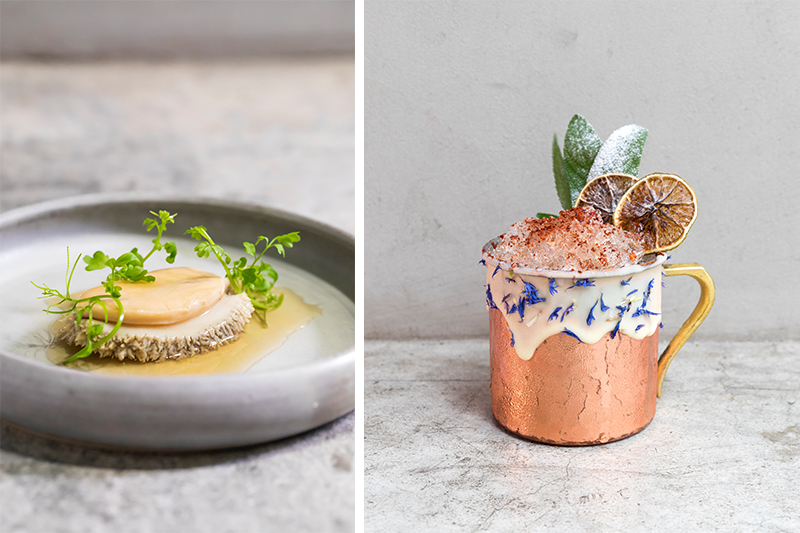
The ‘we’ of the project involves three close friends and his co-founders Australian Kai Ward, formerly of Sydney’s acclaimed The Quay, and American Long Xiong, who Richie met at the renowned Noma. As all three forces behind MUME are deeply experienced chefs, Richie believes that this is what sets them apart not only Taiwan’s culinary game but also from the global F&B scene. “What makes us unique in this newly competitive market? I guess we’re difficult to copy because we are heavily dependent on chefs. You can take our decor and style, but at the end of the day it’s really about the food, right? That takes skill and experience and it’s really hard to replicate and replace. We put a lot of effort into research development, we even have a separate kitchen down the road for just that.”
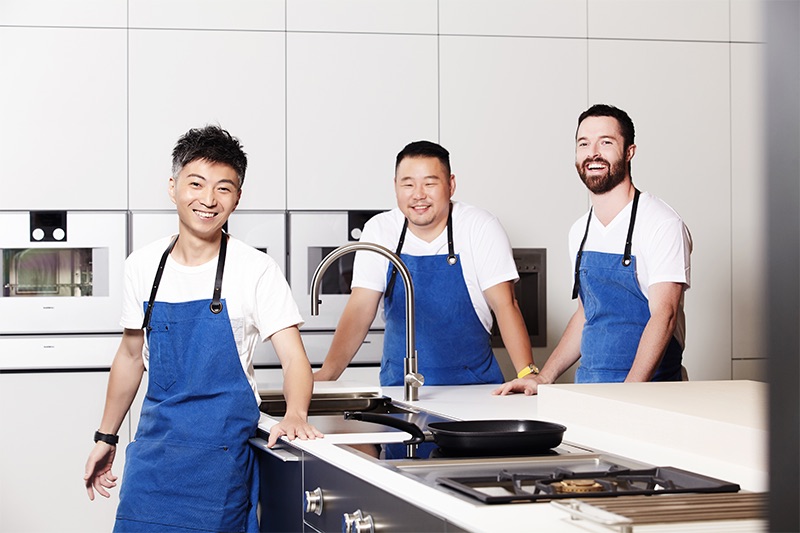
Having more than survived the first four years, winning their Michelin star along the way and beating off stiff competition in a rapidly expanding Taiwanese restaurant offering, Richie has no intention of resting on his laurels. “I think just the passion of cooking helps me through challenges. Even when we’re having a tough time, I’m doing something that I truly love and am passionate about so they’re not difficulties they’re just challenges. You don’t really ever think about giving up and you don’t feel pain. If you truly believe in what you’re doing, you try your best and maintain a good standard, that’s all you should care about. Just always be consistent.” Having cooked around the globe for over a decade and collected a handful of Michelin stars on-the-go, it’s probably safe to assume he knows what he’s talking about.
x
Related Articles
Taiwan’s Food Blogging Sensation
Upcycling Food Waste in Taiwan
OzHarvest: This Female CEO is Leading the Global Revolution Against Food Waste
